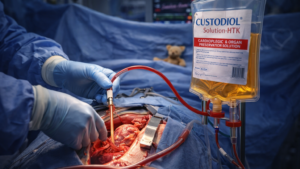
Custodial-HTK Cardioplegia in Conventional Cardiac Surgery: A Retrospective Analysis From UiTM
This retrospective cohort study from a Malaysian tertiary cardiac center compares Custodial-HTK cardioplegia with conventional blood cardioplegia in elective on-pump cardiac surgery. Although Custodial-HTK was preferentially used in higher-risk and more complex cases with lower baseline LVEF and longer bypass times, postoperative outcomes, ICU stay, hospital stay, and 30-day mortality were comparable, supporting its safety and effectiveness.










